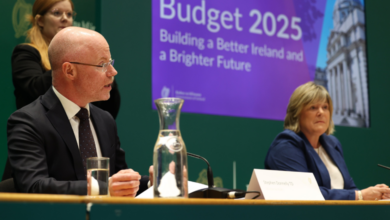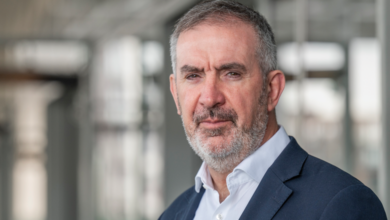Medical regulation in an era of global change must continue to evolve

In 2024, the healthcare and medical landscape continued to evolve rapidly, driven by factors such as the rise of telemedicine, the integration of automation and artificial intelligence in healthcare, the ongoing global response to public health crises and war, and the global movement of doctors and healthcare workers, writes Suzanne Crowe, President, Medical Council.
As the regulator of doctors in Ireland, the Medical Council’s remit is to maintain the Register of Medical Practitioners – the register of all doctors who can practise medicine in Ireland. All doctors practising medicine in Ireland must be registered with the Medical Council and are required to renew their registration on an annual basis.
While the regulation of doctors is perhaps what the Medical Council is best known for, over the past two years, our wider role as an organisation has naturally had to develop and evolve, to respond to and support the public and doctors in a complex environment.
Regulatory policy and standards
Access to healthcare and prescriptions via telemedicine has grown exponentially in the past five years. Our latest research on the topic shows that around one in four (24 per cent) of adults accessed these services in 2023, including 21 per cent who have used GP services through telemedicine, a marked increase from 2 per cent in 2020. Telemedicine usage is highest among 35 to 49-year-olds, and those residing in Dublin.
Advancements in health and medicine means it is essential for doctors to not only maintain their continuous professional development (CPD), but to have access to professional guidance on emerging medical topics.
In January 2024, we published the ninth edition of the Guide to Professional Conduct and Ethics, which seeks to support doctors by providing principles–based guidance on how to best work in partnership with patients. The ninth edition of the Guide covers a wide range of topics and scenarios likely to arise over the course of their professional careers. It contains new and revised guidance for doctors on areas including social media, use of health resources, and clinical and speciality specific standards and guidelines.
We are committed to delivering current, pertinent, and inclusive guidance on a wide range of scenarios that impact the medical profession. In 2025, our Regulatory Policy and Standards team will be publishing updated guidance on topics including telemedicine, open disclosure, and SafeStart – a guide for doctors who are newly working in Ireland.
Professional development
As a result of the changing medical landscape, there has been a renewed emphasis on our role as a regulator in ensuring the quality and integrity of the medical profession. The Medical Council’s role spans the entire lifecycle of a doctor’s career. From the time a student decides to apply to medical school, the Medical Council is present in its role accrediting undergraduate medical education. We stay with the doctor throughout internship and specialist training with our quality assurance model, and throughout doctors’ careers through our role in the maintenance of professional competence, while also supporting international medical graduates through their first time registration, as with all doctors with annual registration retention.
Registration and research
Related to CPD, the registration process is a vital component in ensuring that doctors have the appropriate qualifications and are fit and proper to enter the profession. The annual retention process is also critically important for doctors as it ensures that the register is correct, that doctors have engaged with CPD, have professional indemnity insurance and can make declarations that may impact their practice.
Our 2023 Medical Workforce Intelligence Report highlighted Ireland’s reliance on international doctors, with just over one quarter (25.7 per cent) of clinically active doctors in Ireland holding a basic medical qualification from outside of Ireland, the EU and the UK. We are working with a highly mobile, global medical workforce, with more doctors than ever coming from overseas to live in Ireland with their families and practise medicine here.
It is important that Ireland remains an attractive place for doctors and their families to stay and work long-term. Our report cites research which states that lack of progression opportunities, fear of de-skilling, quality of training, excessive work hours and poor working conditions are among reasons why doctors seek to leave Ireland.
Suzanne Crowe is President of the Medical Council, and a consultant in paediatric intensive care in Children’s Health Ireland Crumlin. She is also a board trustee for LGBT Ireland, Cheshire Ireland, and The Down Syndrome Centre.
Our Research function within the Medical Council collates and analyses information to support and inform national workforce planning, and we work with stakeholders to promote a need for dedicated medical workforce planning, quality training and proper induction for International Medical Graduates. Medical workforce shortages in Ireland highlight the need for greater supports to ensure we retain doctors and incentivise them to practise medicine in Ireland.
Looking ahead
As the regulator, we essentially need to be able to adapt our role at pace. Regulatory bodies worldwide have had to adapt their approach, guidelines and standards to ensure that doctors are competent to handle new challenges and be aware of risks.
While our remit of robust professional regulation is paramount, we must balance the need for innovation with patient safety, ensuring access to quality medical care, and managing the implications of increasingly digital and data-driven healthcare. These are just some of the issues that regulatory bodies must navigate.
The professional regulation of doctors over the coming years will play a crucial role in safeguarding patients and upholding the integrity of the medical profession. It will be shaped by further technological advancements, societal changes, and the lessons learned from global health crises.
The Medical Council is the regulator of doctors in Ireland and maintains the Register of Medical Practitioners – the register of all doctors who can practise medicine in Ireland. The Medical Council also sets the standards for medical education and training in Ireland. It oversees lifelong learning and skills development throughout doctors’ professional careers through its professional competence requirements. It is charged with promoting good medical practice. The Medical Council is also where the public may make a complaint against a doctor.
You can find out more about the Medical Council’s work by visiting:
W: www.medicalcouncil.ie






